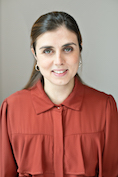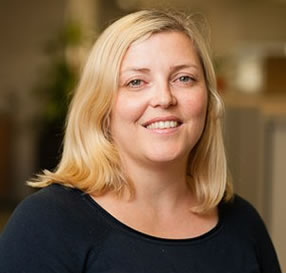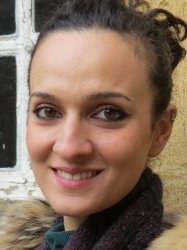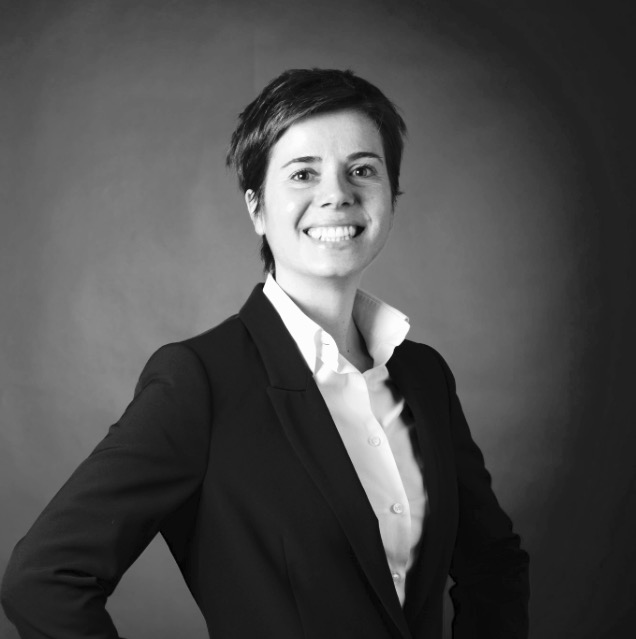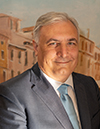Studiare
In questa sezione è possibile reperire le informazioni riguardanti l'organizzazione pratica del corso, lo svolgimento delle attività didattiche, le opportunità formative e i contatti utili durante tutto il percorso di studi, fino al conseguimento del titolo finale.
Calendario accademico
Il calendario accademico riporta le scadenze, gli adempimenti e i periodi rilevanti per la componente studentesca, personale docente e personale dell'Università. Sono inoltre indicate le festività e le chiusure ufficiali dell'Ateneo.
L’anno accademico inizia il 1° ottobre e termina il 30 settembre dell'anno successivo.
Calendario didattico
Il calendario didattico indica i periodi di svolgimento delle attività formative, di sessioni d'esami, di laurea e di chiusura per le festività.
| Periodo | Dal | Al |
|---|---|---|
| primo semestre (lauree) | 20-set-2021 | 14-gen-2022 |
| secondo semestre (lauree) | 21-feb-2022 | 1-giu-2022 |
| Sessione | Dal | Al |
|---|---|---|
| sessione invernale | 17-gen-2022 | 18-feb-2022 |
| sessione estiva | 6-giu-2022 | 15-lug-2022 |
| sessione autunnale | 22-ago-2022 | 16-set-2022 |
| Sessione | Dal | Al |
|---|---|---|
| sessione autunnale (validità a.a. 2020/2021) | 6-dic-2021 | 10-dic-2021 |
| sessione invernale (validità a.a. 2020/2021) | 6-apr-2022 | 8-apr-2022 |
| sessione estiva (validità a.a. 2021/2022) | 5-set-2022 | 6-set-2022 |
Calendario esami
Gli appelli d'esame sono gestiti dalla Unità Operativa Segreteria dei Corsi di Studio Economia.
Per consultazione e iscrizione agli appelli d'esame visita il sistema ESSE3.
Per problemi inerenti allo smarrimento della password di accesso ai servizi on-line si prega di rivolgersi al supporto informatico della Scuola o al servizio recupero credenziali
Per dubbi o domande leggi le risposte alle domande più frequenti F.A.Q. Iscrizione Esami
Docenti
 giovanna.caramia@univr.it
giovanna.caramia@univr.it
 silvano.corbella@univr.it
silvano.corbella@univr.it
 simona.fiore@univr.it
simona.fiore@univr.it
 tamara.fioroni@univr.it
tamara.fioroni@univr.it
 maurizio.malpede@univr.it
maurizio.malpede@univr.it
 martina.menon@univr.it
martina.menon@univr.it
 fabio.sartori@univr.it
fabio.sartori@univr.it
 alex.sclip@univr.it
alex.sclip@univr.it
 chiara.zamboni_01@univr.it
chiara.zamboni_01@univr.it
Piano Didattico
Il piano didattico è l'elenco degli insegnamenti e delle altre attività formative che devono essere sostenute nel corso della propria carriera universitaria.
Selezionare il piano didattico in base all'anno accademico di iscrizione.
1° Anno
| Insegnamenti | Crediti | TAF | SSD |
|---|
2° Anno Attivato nell'A.A. 2022/2023
| Insegnamenti | Crediti | TAF | SSD |
|---|
3° Anno Attivato nell'A.A. 2023/2024
| Insegnamenti | Crediti | TAF | SSD |
|---|
Due insegnamenti a scelta| Insegnamenti | Crediti | TAF | SSD |
|---|
| Insegnamenti | Crediti | TAF | SSD |
|---|
| Insegnamenti | Crediti | TAF | SSD |
|---|
Due insegnamenti a scelta| Insegnamenti | Crediti | TAF | SSD |
|---|
Legenda | Tipo Attività Formativa (TAF)
TAF (Tipologia Attività Formativa) Tutti gli insegnamenti e le attività sono classificate in diversi tipi di attività formativa, indicati da una lettera.
Microeconomia (2022/2023)
Codice insegnamento
4S00239
Docenti
Coordinatore
Crediti
9
Lingua di erogazione
Italiano
Settore Scientifico Disciplinare (SSD)
SECS-P/01 - ECONOMIA POLITICA
Periodo
Primo semestre (lauree) dal 19-set-2022 al 13-gen-2023.
Obiettivi di apprendimento
L'insegnamento si propone di fornire le basi concettuali e metodologiche necessarie per analizzare e interpretare come i consumatori e le imprese prendono le loro decisioni e come sono organizzati i mercati, con particolare riguardo ai concetti di ottimizzazione e di equilibrio. A completamento delle lezioni, lo studente dovrà dimostrare di conoscere i modelli microeconomici per l’analisi dei mercati e di saper determinare il comportamento di consumatori ed imprese all'interno di tali mercati. Lo studente sarà anche in grado di esprimere giudizi autonomi sulle implicazioni derivanti dalle scelte degli agenti economici e saprà porre a confronto le differenti forme di mercato.
Prerequisiti e nozioni di base
Non c'è nessun requisito obbligatorio. E' comunque necessaria la conoscenza di concetti di base di matematica.
Programma
- Teoria del consumatore: vincolo di bilancio, preferenze, utilità, scelta, domanda, preferenze rivelate, equazione di Slutsky con reddito iniziale dato e con dotazione iniziale in beni, scelta intertemporale, incertezza, surplus del consumatore, domanda di mercato, equilibrio
- Teoria della produzione e dei costi: tecnologia, massimizzazione del profitto, minimizzazione dei costi, curve di costo
- Concorrenza perfetta
- Mercati monopolistici
- Concorrenza imperfetta e comportamento strategico
- Aste
- Teoria dell'equilibrio economico generale
- Rischio e informazione.
Libri di testo:
Per lo studio della teoria i testi consigliati sono (in alternativa): H.R. Varian, Microeconomia, Cafoscarina 2011; D.A. Besanko & R.R. Braeutigam, Microeconomia, McGraw-Hill, 2020.
Per gli esercizi si consiglia: G.P. Cipriani & T. Fioroni, Esercizi di Microeconomia, Giappichelli, 2020.
Bibliografia
Modalità didattiche
Sono previste 56 ore di lezione e 24 ore di esercitazione. Inoltre, sarà organizzato un tutorato per assistere gli studenti nello svolgimento degli esercizi. Sulla piattaforma e-learning di ateneo saranno pubblicate tutte le slides usate a lezione, il materiale didattico usato nelle esercitazioni e nel tutorato e i link alle eventuali lezioni registrate. Gli studenti saranno anche invitati a svolgere e consegnare esercizi direttamente sulla piattaforma di e-learning.
Modalità di verifica dell'apprendimento
Le modalità d'esame sono identiche per frequentanti, non frequentanti e studenti Erasmus.
In itinere, circa a metà del semestre, è prevista una prova facoltativa di accertamento intermedia. Alla prova intermedia potranno accedere solamente gli studenti frequentanti che avranno superato almeno 3 prove su 5 assegnate durante il corso sul portale di e-learning. La prova intermedia verte sulla teoria del consumatore ed è in forma scritta. In particolare, consiste in esercizi e domande di teoria formulati anche attraverso un test a risposta multipla. Il test è teso a verificare la conoscenza dei diversi argomenti del programma, mentre gli esercizi vogliono verificare l'applicazione metodologica delle conoscenze acquisite. La prova sarà valutata in trentesimi e il suo voto farà media con il voto della seconda prova, che si svolgerà nello stesso modo e che si terrà nel primo appello della sessione ufficiale. In questa prova di completamento non verrà chiesta la parte di programma già oggetto di esame nella prova intermedia.
Durante il corso potranno essere proposti degli esercizi da svolgere sul portale di e-learning e si terrà conto dell'esito di queste prove per l'attribuzione di punti di bonus per la prova intermedia o quella finale.
Gli studenti che sceglieranno di non sostenere la prova intermedia, o che avranno ottenuto in questa prova un voto inferiore a 16/30, dovranno sostenere l'esame in un'unica soluzione su tutto il programma durante le sessioni d'esame. Anche questo esame consisterà in esercizi e domande di teoria formulati anche attraverso un test a scelta multipla.
Nella valutazione dei test a risposta multipla si assegna un punteggio negativo per ogni risposta errata. La prova d'esame si considera non superata se il voto del test è inferiore a 10/30. Se è superiore a 10/30, il voto del test vale il 30% della valutazione della prova e il voto degli esercizi ed eventuali domande aperte il rimanente 70%.
Nella eventualità di esame a distanza, la verifica dell'applicazione metodologica delle conoscenze acquisite, che è accertata con lo svolgimento scritto di esercizi nella modalità in presenza, avverrà anche attraverso una prova orale. Pertanto, nella modalità a distanza, l'esame di svolgerà attraverso un test con domande a risposta multipla e a risposta numerica calcolata, superato il quale si accederà ad una successiva prova orale.
Criteri di valutazione
Nel test a scelta multipla sono penalizzate le risposte sbagliate e si attribuisce un punteggio nullo per quelle non date. La penalizzazione è tale da rendere nullo il punteggio atteso da risposte casuali. Negli esercizi svolti si valuta anche la correttezza del procedimento e l'accuratezza delle spiegazioni (quando richieste).
Criteri di composizione del voto finale
50% prova intermedia (se sostenuta e superata), 50% prova finale. Eventuali punti bonus aggiuntivi per esercizi svolti durante il corso.
Lingua dell'esame
Italiano
Tipologia di Attività formativa D e F
Nei piani didattici di ciascun Corso di studio è previsto l’obbligo di conseguire un certo numero di crediti formativi mediante attività a scelta (chiamate anche "di tipologia D e F").
Oltre che in insegnamenti previsti nei piani didattici di altri corsi di studio e in certificazioni linguistiche o informatiche secondo quanto specificato nei regolamenti di ciascun corso, tali attività possono consistere anche in iniziative extracurriculari di contenuto vario, quali ad esempio la partecipazione a un seminario o a un ciclo di seminari, la frequenza di laboratori didattici, lo svolgimento di project work, stage aggiuntivo, eccetera.
Come per ogni altra attività a scelta, è necessario che anche queste non costituiscano un duplicato di conoscenze e competenze già acquisite dallo studente.
Quelle elencate in questa pagina sono le iniziative extracurriculari che sono state approvate dal Consiglio della Scuola di Economia e Management e quindi consentono a chi vi partecipa l'acquisizione dei CFU specificati, alle condizioni riportate nelle pagine di dettaglio di ciascuna iniziativa.
Si ricorda in proposito che:
- tutte queste iniziative richiedono, per l'acquisizione dei relativi CFU, il superamento di una prova di verifica delle competenze acquisite, secondo le indicazioni contenute nella sezione "Modalità d'esame" della singola attività;
- lo studente è tenuto a inserire nel proprio piano degli studi l'attività prescelta e a iscriversi all'appello appositamente creato per la verbalizzazione, la cui data viene stabilita dal docente di riferimento e pubblicata nella sezione "Modalità d'esame" della singola attività.
COMPETENZE TRASVERSALI
Scopri i percorsi formativi promossi dal Teaching and learning centre dell'Ateneo, destinati agli studenti iscritti ai corsi di laurea, volti alla promozione delle competenze trasversali: https://talc.univr.it/it/competenze-trasversali
ATTENZIONE: Per essere ammessi a sostenere una qualsiasi attività didattica, inlcuse quelle a scelta, è necessario essere iscritti all'anno di corso in cui essa viene offerta. Si raccomanda, pertanto, ai laureandi delle sessioni di dicembre e aprile di NON svolgere attività extracurriculari del nuovo anno accademico, cui loro non risultano iscritti, essendo tali sessioni di laurea con validità riferita all'anno accademico precedente. Quindi, per attività svolte in un anno accademico cui non si è iscritti, non si potrà dar luogo a riconoscimento di CFU.
| anni | Insegnamenti | TAF | Docente |
|---|---|---|---|
| 1° 2° | Piano di Marketing - 2021/2022 | D |
Virginia Vannucci
(Coordinatore)
|
| anni | Insegnamenti | TAF | Docente |
|---|---|---|---|
| 1° 2° | Internazionalizzazione e sostenibilità. Amici o nemici? 2021/2022 (1 cfu) | D |
Angelo Zago
(Coordinatore)
|
| 1° 2° | Internazionalizzazione e sostenibilità. Amici o nemici? 2021/2022 (2 cfu) | D |
Angelo Zago
(Coordinatore)
|
| 1° 2° | Internazionalizzazione e sostenibilità. Amici o nemici? 2021/2022 (3 cfu) | D |
Angelo Zago
(Coordinatore)
|
| 1° 2° | Laboratorio di SAP per il Data Science – 2021/2022 | D |
Marco Minozzo
(Coordinatore)
|
| 1° 2° | Programmazione in Matlab – 2021/2022 | D |
Marco Minozzo
(Coordinatore)
|
| 1° 2° | Programmazione in SAS – 2021/2022 | D |
Marco Minozzo
(Coordinatore)
|
| anni | Insegnamenti | TAF | Docente |
|---|---|---|---|
| 1° 2° | Ciclo di conferenze: “Quali paradigmi oltre la pandemia? Individuo vs. società. Privato vs. pubblico” - 2021/2022 | D |
Federico Brunetti
(Coordinatore)
|
| anni | Insegnamenti | TAF | Docente |
|---|---|---|---|
| 1° 2° | Economia, bilancio e controllo delle aziende sanitarie | D |
Paolo Roffia
(Coordinatore)
|
| anni | Insegnamenti | TAF | Docente |
|---|---|---|---|
| 1° 2° | Introduzione al sistema di videoscrittura LaTeX - 2021/2022 | D |
Alberto Peretti
(Coordinatore)
|
| anni | Insegnamenti | TAF | Docente |
|---|---|---|---|
| 1° 2° | English for Business and Economics – CdL triennali - 2021/2022 | D |
Marco Minozzo
(Coordinatore)
|
| 1° 2° | Laboratorio di Analisi dei Dati con R (Verona) – 2021/2022 | D |
Marco Minozzo
(Coordinatore)
|
| 1° 2° | Laboratorio di Data Visualization – 2021/2022 | D |
Marco Minozzo
(Coordinatore)
|
| 1° 2° | Laboratorio di Python – 2021/2022 | D |
Marco Minozzo
(Coordinatore)
|
| 1° 2° | Laboratorio Excel Avanzato (Verona) – 2021/2022 | D |
Marco Minozzo
(Coordinatore)
|
| 1° 2° | Laboratorio Excel (Verona) – 2021/2022 | D |
Marco Minozzo
(Coordinatore)
|
| 1° 2° | Samsung Innovation Camp - 2021/2022 | D |
Marco Minozzo
(Coordinatore)
|
Prospettive
Avvisi degli insegnamenti e del corso di studio
Per la comunità studentesca
Se sei già iscritta/o a un corso di studio, puoi consultare tutti gli avvisi relativi al tuo corso di studi nella tua area riservata MyUnivr.
In questo portale potrai visualizzare informazioni, risorse e servizi utili che riguardano la tua carriera universitaria (libretto online, gestione della carriera Esse3, corsi e-learning, email istituzionale, modulistica di segreteria, procedure amministrative, ecc.).
Entra in MyUnivr con le tue credenziali GIA: solo così potrai ricevere notifica di tutti gli avvisi dei tuoi docenti e della tua segreteria via mail e a breve anche tramite l'app Univr.
Prova finale
La prova finale, il cui superamento attribuisce 3 CFU, consiste in un elaborato in forma scritta di almeno 30 cartelle, che approfondisce un tema a scelta relativo a uno degli insegnamenti previsti dal piano didattico dello studente. Il tema e il titolo dell’elaborato dovranno essere selezionati in accordo con un docente dell’Ateneo di un SSD fra quelli presenti nel piano didattico dello studente. Il lavoro deve essere sviluppato sotto la guida del docente. L’elaborato è oggetto di esposizione e discussione orale dinanzi a una Commissione Istruttoria, composta dal docente di cui al comma precedente, in qualità di Relatore, e da un secondo docente appartenente al medesimo settore scientifico-disciplinare o a settore affine. La discussione si svolge in una data concordata con il Relatore, di norma in occasione di una qualsiasi sessione d’esame. Con il consenso del Relatore, la tesi può essere redatta e la discussione svolgersi in lingua inglese. La scelta del tema e del titolo dell’elaborato e lo svolgimento della discussione a norma dei commi precedenti possono essere effettuate a partire dall’inizio dell’ultimo anno di corso, e comunque solo dopo l’acquisizione in carriera di almeno 120 CFU. Valutati la qualità dell’elaborato e della sua presentazione e discussione da parte dello studente, la Commissione Istruttoria formula una proposta di giudizio, che può essere positiva o negativa: nel primo caso, essa è accompagnata da una proposta di punteggio, da un minimo di 0 a un massimo di 4 punti; nel secondo caso, è accompagnata dall’indicazione al laureando di opportuni suggerimenti migliorativi. La proposta di punteggio non deve in alcun modo tener conto della carriera del laureando. La determinazione del punteggio finale e il conferimento del titolo sono di esclusiva competenza della Commissione di Laurea, composta secondo quanto stabilito dal RDA. È possibile conseguire la laurea anche in un tempo inferiore a tre anni, fermi restando gli obblighi contributivi per tutta la durata legale del corso.
Per maggiori informazioni e la consultazione delle scadenze e delle commissioni di laurea si rimanda all'apposita sezione dei Servizi di Segreteria studenti.
Tutorato per gli studenti
I docenti dei singoli Corsi di Studio erogano un servizio di tutorato volto a orientare e assistere gli studenti del triennio, in particolare le matricole, per renderli partecipi dell’intero processo formativo, con l’obiettivo di prevenire la dispersione e il ritardo negli studi, oltre che promuovere una proficua partecipazione attiva alla vita universitaria in tutte le sue forme.Tirocini e stage
Nel piano didattico dei Corsi di Laurea triennale (CdL) e Magistrale (CdLM) di area economica è previsto uno stage come attività formativa obbligatoria. Lo stage, infatti, è ritenuto uno strumento appropriato per acquisire competenze e abilità professionali e per agevolare la scelta dello sbocco professionale futuro, in linea con le proprie aspettative, attitudini e aspirazioni. Attraverso l’esperienza pratica in ambiente lavorativo, lo studente può acquisire ulteriori competenze ed abilità relazionali.
Per informazioni specifiche, consultare il servizio di Segreteria studenti appositamente dedicato a Stage.
 045 802 8224
045 802 8224









